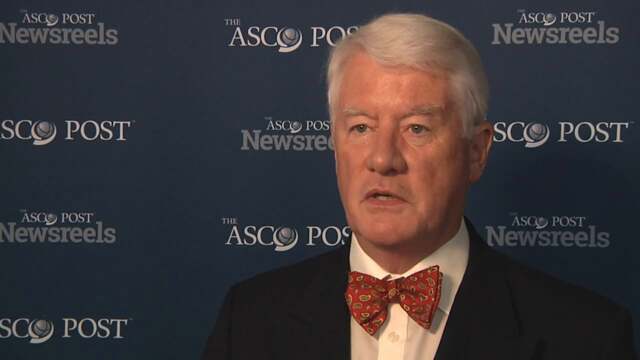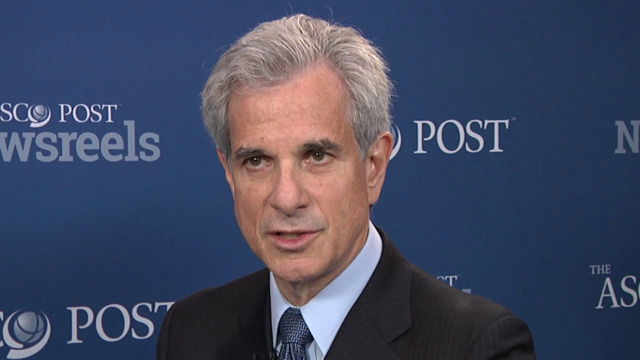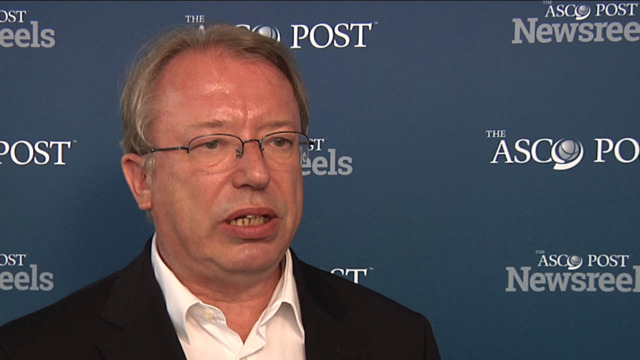Daniel A. Vorobiof, MD, and Bernardo Leon Rapoport, MD, on NK-1 Inhibitors for CINV: Potentially Practice-Changing Data
2015 ASCO Annual Meeting
Daniel A. Vorobiof, MD, of the Sandton Oncology Centre, and Bernardo Leon Rapoport, MD, of The Medical Oncology Centre of Rosebank, discuss the first study to evaluate the efficacy and safety of a single dose of intravenous fosaprepitant. The use of this NK1 inhibitor and another (rolapitant) in a second study discussed may change the management of chemotherapy-induced nausea and vomiting and improve quality of life for patients (Abstracts 9629 and 9615).
John Smyth, MD
John Smyth, MD, of the University of Edinburgh, discusses oncology from an international point of view.
Howard I. Scher, MD
Howard I. Scher, MD, of Memorial Sloan Kettering Cancer Center, discusses the updated criteria that will guide clinical trial design and conduct for therapeutics being tested in castration-resistant prostate cancer (Abstract 5000).
Claus Garbe, MD
Claus Garbe, MD, of the University of Tuebingen, discusses the survival of sentinel lymph node biopsy–positive melanoma patients with and without complete lymph node dissection (Abstract LBA9002).
Andrew James Martin, PhD
Andrew James Martin, PhD, of NHMRC Clinical Trials Centre, University of Sydney, discusses a form of vitamin B3 that reduced the incidence of new nonmelanoma skin cancers in high-risk patients (Abstract 9000).
Jame Abraham, MD
Jame Abraham, MD, of the Cleveland Clinic discusses analyses of two trials for locally advanced, inflammatory, or early HER2-positive breast cancer using docetaxel, trastuzumab, pertuzumab, and neratinib (Abstracts 505 and 508).





